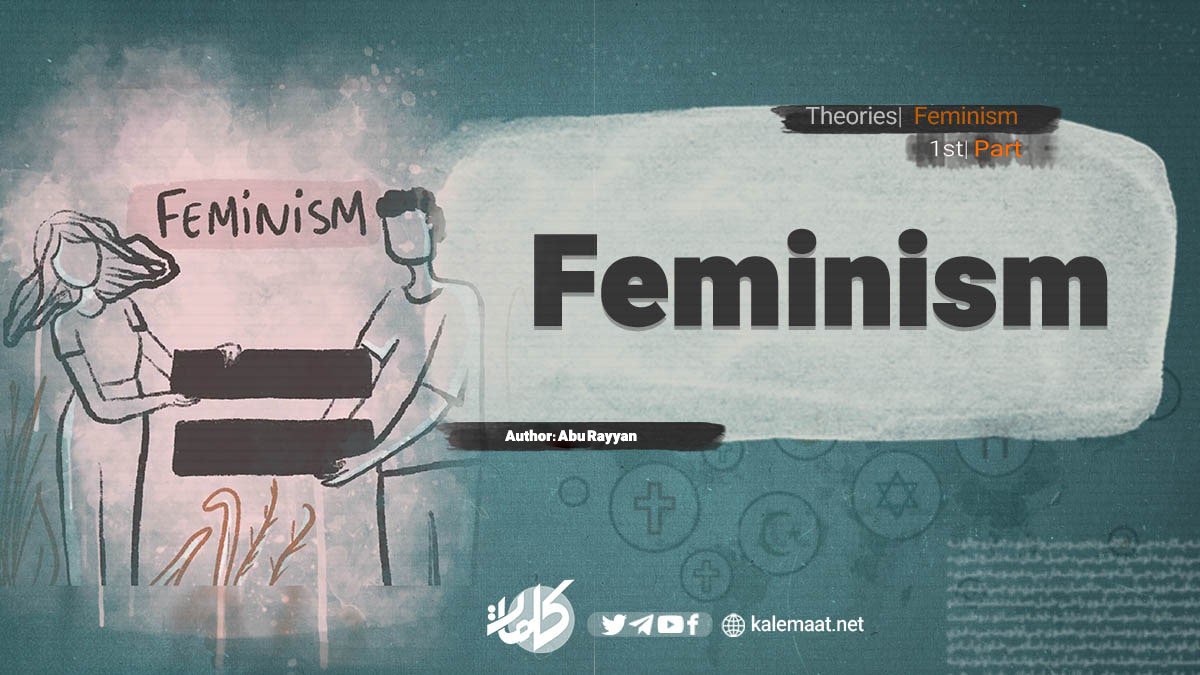Author: Abu Rayyan
Feminism or the destruction of the family (First part)
Abstract
The theory of “feminism” after emerging in the nineteenth century, engaged numerous gatherings and forums, captivating countries that purportedly championed women’s rights. This theory gained more prominence and politicians, in a bid to garner the attention of women, embraced this ideology fervently.
Muslim women, unaware of the hidden agendas behind this theory, wholeheartedly supported it and immersed themselves within its fold. They aim to implement feminist laws in Islamic countries and nurture the ideal of equality between women and men within their societies.
The feminist society mostly targets the family, attempting to equalize men and women, allowing women to engage beyond the household walls and participate in activities traditionally dominated by men. Moreover, according to feminist theory, women have the freedom to engage in relationships with different men, and no one has the right to set boundaries for them.
Furthermore, according to feminism, it is not a woman’s duty to raise children or take care of household chores. However, in Islam, most family roles are considered desirable, and the Holy Quran provides beautiful guidelines for the order and security of families, which Muslims adhere to.
In this text, we strive to shed light on the true face of feminism for our esteemed readers.
Keywords: Feminism; History of Feminism; Goals of Feminism; Islam.
Introduction:
The family is one of the most crucial components of society. Its prosperity and guidance propel society towards goodness and success. The most fundamental secret to the success of society lies in a healthy family. Families provide the best and most suitable environment for expressing emotions, having security, and nurturing hope in life. The destiny of all segments of society is intimately connected with the state of the family.
If the order and system within families are correct and proceed naturally, then undoubtedly, a society wherein such families thrive will witness growth and flourishing. It will emanate a sense of tranquility and relish the flavor of security.
However, if we aim to eliminate the family from a society or disregard the role of the family in nurturing future generations, we will face a distorted society that values nothing. It becomes impossible for anyone to find serenity in such a society.
This vital and crucial segment of society has become the target of attacks by feminists and their supporters. They vigorously oppose the family, exerting all their efforts and powers against it, striving to dismantle its roots and sever its vital lifelines.
Feminists do not consider the family unimportant or crucial; rather, they portray the family as the epicenter of oppression and backwardness for women. They believe that as long as the family system prevails in society and countries, women will remain captive and subjected to oppression.
Consequently, they aim to render women, who are fundamentally the pillars of the family, helpless. They intend to grab their hands, separate them from the warm embrace of the family, and ruin their lives with false promises of freedom. Exploiting their emotions and feelings to the fullest, they lead them into a delusional realm of freedom.
The conceptual and terminological understanding of feminism.
This term originates from the root “Femine” meaning “womanly” and “related to women.” Its Persian equivalents are “Zan-Garaaee” (feminism), “Zan-Bavari” (belief in women), and “Zan Azadkhahi” (women’s emancipation).
The definition of this term includes the following two meanings:
A theory advocating that women should have equal opportunities and rights as men in all political, economic, and social aspects. Its Persian equivalents include feminism, belief in women, and women’s dominance.
Social movements striving to institutionalize the aforementioned belief and conviction. The Persian equivalents for this meaning are women’s movements and women’s liberation movements.
All feminisms share two common premises:
A. Women have been subjected to oppression and discrimination, stemming from their gender.
B. This oppression and discrimination are not inherent and should be eradicated.
The primary demands of feminism, over the three centuries since its emergence, can generally be summarized as follows:
Women’s right to vote on par with men in socio-political matters.
Equal educational opportunities for women, free from limitations like those imposed on men.
Women’s rights to employment, access to jobs, and various social occupations.
Elimination of the requirement for women to obey their husbands.
Freedom of choice regarding abortion for women.
Abolishment of stringent laws regarding female indecency.
Necessity for women to break free from subjugation by men, both in civil and private life as wives or mothers.
Women’s freedom from sexual subjugation by men and advocating for women’s use of homosexuality as an alternative to forming a traditional family.
Government action to establish childcare centers and alleviate the burden of childcare from mothers.
Reevaluation of religious perspectives and laws pertaining to women.
Equal rights for legitimate and illegitimate children.
Asserting the superiority of the female gender due to certain exceptional psychological traits in women, such as an aversion to war.
(Continues…)
_____________________________________________________
1. Qadusi-Zadeh, Hassan zadeh, Political-Cultural Terms, page 106, Publisher: Ma’aref Publishing Office, First Edition, Spring 87.



